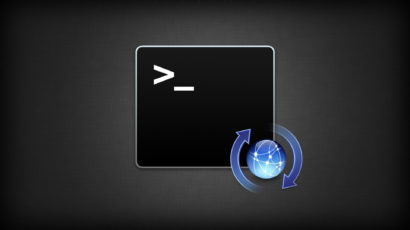Apple is planning to remove support for 32-bit apps in macOS, but if you’re ready for the future, you can enable a 64-bit-only mode on your Mac right now. Here’s how to do it, as well as why you may want to hold off on killing 32-bit apps so soon.
Stop Your Mac From Creating .DS_Store Files on Shared Network Drives
Your Mac creates hidden .DS_Store files whenever it browses to a new directory. These files store handy metadata and layout information, but if you’re using a network drive shared with Windows users, these files may not be so hidden. Here’s how to stop your Mac from creating .DS_Store files on network drives.
How to Run Mac Software Update via the Terminal
When you need to install software updates on your Mac, you probably head to the Mac App Store. But when it comes to macOS software updates, the Mac App Store is really just a front end for a UNIX command, and fans of the Mac’s Terminal can actually use this command to update their Mac and first party apps while bypassing the Mac App Store altogether. Here’s how.
How to Stop the OS X Help Window from Staying on Top
The OS X Help Viewer displays important usage and troubleshooting information for many Mac apps, but by default it stays on top of all other windows, even when not active, which can be an issue for users with smaller screens. Here’s how to change that behavior and make the Help Viewer window behave just like any other OS X app.
Advertisement
How to Find Mac Uptime in OS X
System uptime, the amount of time since a computer’s last boot up, can be an important piece of information for troubleshooting and maintenance purposes. Here are two ways to find your Mac uptime in OS X.
How to Dim Hidden Mac App Icons in the Dock
OS X lets users “hide” applications on the desktop, which leaves the app open but removes all of its windows from view. As a result, hidden apps are sometimes difficult to keep track of, so here’s a simple Terminal command that will dim the Dock icon of any hidden app, allowing you to quickly see which apps are currently hidden on your Mac.
How to Disable ‘Are You Sure You Want to Open This File?’ Warnings in OS X
OS X includes a host of security features that aim to keep users safe and secure, but some of these features may be a bit overzealous and end up causing only frustrations and annoyances, especially when it comes to power users. Here’s how you can deal with one of those annoyances: the infamous “are you sure you want to open this file?” warning message.
How to Stress Test a Mac CPU
If your Mac is experiencing random shutdowns or poor performance, a CPU stress test may help identify the cause. While there are third party utilities that can stress test your Mac, here’s how you can perform basic CPU stress testing with an easy Terminal command.
How to Find Your Mac’s Exact CPU Model
When buying a new Mac, Apple provides basic CPU info but hides the specific processor model. This is fine for most users, but those troubleshooting issues or hoping to compare their Mac to a PC or older Mac may want to know exactly which CPU is powering their system. Here’s how to quickly find your Mac’s CPU model via Terminal.
How to Give Your Mac an iOS-Like Charging Sound
The new 12-inch MacBook adopts the iOS Power Chime to audibly alert you when a valid charging connection is made. Here’s how you can configure your existing Mac to make the same chime when connecting your MagSafe adapter, but you’ll need to be running the latest version of OS X Yosemite.









